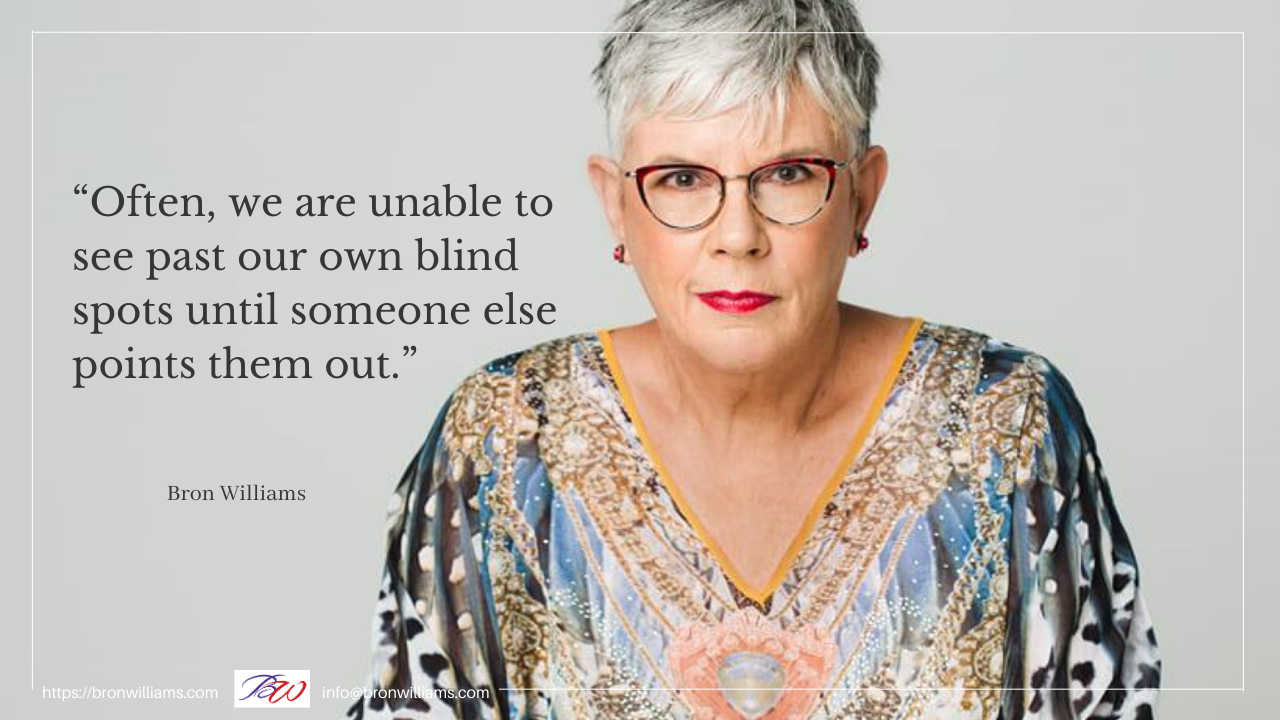We Can't See Past Our Own Blindspots
The Importance of Acknowledging Our Limited Perspectives

I became acutely aware of my own blind spots through a comment on one of my YouTube shorts. In that short, I discussed the concept of "enough" — how much work we cram into a day and the relentless pace we drive ourselves. One comment stood out: “What a privileged perspective. We’re all out here just trying to survive.” This remark hit home, making me realize how deeply entrenched I was in my own perspective. When I made that video, I was speaking solely from my personal experiences as an older woman, still pushing myself to achieve as I did 20 years ago. This mindset is neither appropriate nor beneficial at my stage in life.
The commenter's viewpoint was equally valid. Many people don’t have the luxury to decide when enough is enough because their day-to-day existence is a struggle for survival. My blind spot was glaringly exposed — I had failed to consider the vast array of experiences outside my own.
Another stark example of not seeing past one’s blind spots arose from a LinkedIn post. A woman criticized OpenAI and News Corp Australia for perpetuating patriarchal and non-diverse perspectives, particularly noting their all-white, all-male boards. She emphasized the achievements of women in STEM, AI, and cybersecurity fields. Most of the comments on her post were from women highlighting other accomplished women, reinforcing the need for greater representation.
However, one older white man commented, suggesting the use of his clips discussing patriarchy in male-dominated workplaces. Although his intentions seemed supportive, he inadvertently centred his perspectives and achievements in a conversation meant to uplift women. He did not recognize that, as an older white male, his voice was not what this particular discussion needed. His blind spot prevented him from seeing that his expertise, while valuable, was not the focal point of this conversation.
In both scenarios, my own as an older white woman and his as an older white man, we exhibited significant blind spots. My perspective in the YouTube video was valid and necessary for those who needed to hear it, but it was limited. Similarly, his resources and commitment to dismantling patriarchy are essential, but his timing and understanding were off. We both brought valuable insights but failed to recognize when to step back and let other voices take centre stage.
Our blind spots are shaped by our unconscious biases and experiences. They influence how we view the world and interact with it. Often, we are unable to see past these blind spots until someone else points them out. The key is to be open to these revelations and willing to adjust our perspectives accordingly.
Understanding and acknowledging our blind spots is crucial in creating more inclusive and empathetic dialogues. We must strive to listen actively and understand the diverse experiences of others. Only then can we truly contribute to meaningful change and support each other’s journeys authentically. Recognizing our blind spots doesn’t diminish our perspectives but rather enriches our understanding and ability to connect with others. In this way, we grow not just as individuals but as a collective striving towards a more inclusive world.